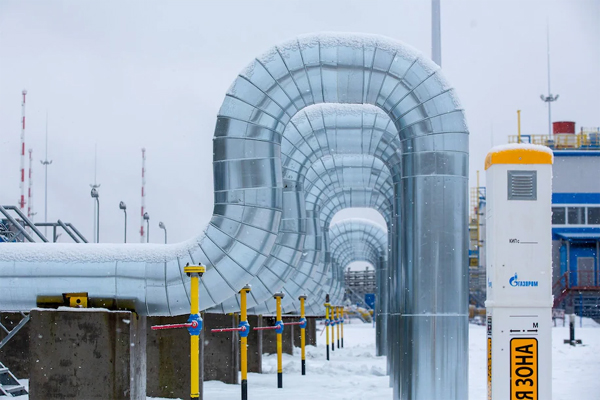
By Liam Denning
Putin aims energy weapon at voters
An aficionado of judo, Russian President Vladimir Putin likes to turn his opponents’ strengths against them. In his energy war with the nations backing Ukraine, he can take advantage of a defining strength of the West: democracy.
Having denied Putin a quick victory, Ukraine is embroiled in a grinding war, relying on Western aid. The US and allies have also begun to slowly implement sanctions on Russia’s vital energy exports. Rather than wait around, Putin has weaponized them already. Reduced gas flows (with warnings they may drop further this week and heavy hints of outright cutoffs) have raised the prospect of idled factories and frozen homes across Europe this winter. The war has already fueled a spike in energy prices hitting consumers around the world.

Putin’s hope is that the pain will cause Ukraine’s backers to tire of this war. Russia may face its deepest recession since 1994, but Putin is unlikely to pay a political price anytime soon. In contrast, Western governments must balance the need to defeat Russia with the demands, and stamina, of their electorates.
On that front, Putin may be encouraged by events of late. Last week, Mario Draghi’s coalition collapsed in Italy. Over in the UK, Conservatives are busy selecting Prime Minister Boris Johnson’s successor after his resignation. French President Emanuel Macron lost his parliamentary majority last month as far left and right parties made big gains. In the US, governing Democrats can probably expect big losses in November’s midterm elections.
While the specifics of each case are different, the higher fuel prices spawned by Russia’s war — exacerbating existing post-pandemic economic pressures — certainly haven’t helped in any of them. Energy price spikes tend to puncture political careers, be it Macron’s clash with the gilets jaunes or President Joe Biden’s poll numbers, and the green agenda, faltering in the face of high inflation.
A long conflict would demand sacrifices no elected politician really wants to talk about; several European countries have already swatted down proposals for coordinated gas rationing (see below). For Putin, the energy weapon offers a way of pushing the West’s electorates to take down their own leaders.
—Liam Denning, Bloomberg Opinion
_________________________________________________________________________
Liam Denning is a Bloomberg Opinion columnist covering energy, mining and commodities. He previously was editor of the Wall Street Journal’s Heard on the Street column and wrote for the Financial Times’ Lex column. He was also an investment banker. Energiesnet.com does not necessarily share these views.
Editor’s Note: This article was originally published by Bloomberg on July 25 , 2022. EnergiesNet.com reproduces this article in the interest of our readers. All comments posted and published on EnergiesNet.com, do not reflect either for or against the opinion expressed in the comment as an endorsement of EnergiesNet.com or Petroleumworld.
Use Notice: This site contains copyrighted material the use of which has not always been specifically authorized by the copyright owner. We are making such material available in our efforts to advance understanding of issues of socially, environmental and humanitarian significance. We believe this constitutes a ‘fair use’ of any such copyrighted material as provided for in section 107 of the US Copyright Law. In accordance with Title 17 U.S.C. Section 107. For more information go to: http://www.law.cornell.edu/uscode/17/107.shtml.
EnergiesNet.com 07 26 2022












